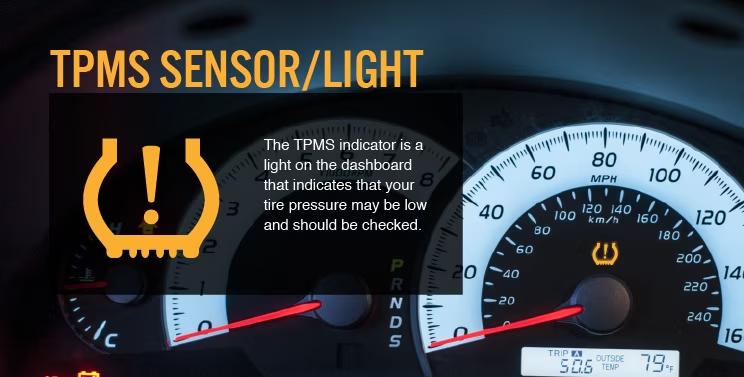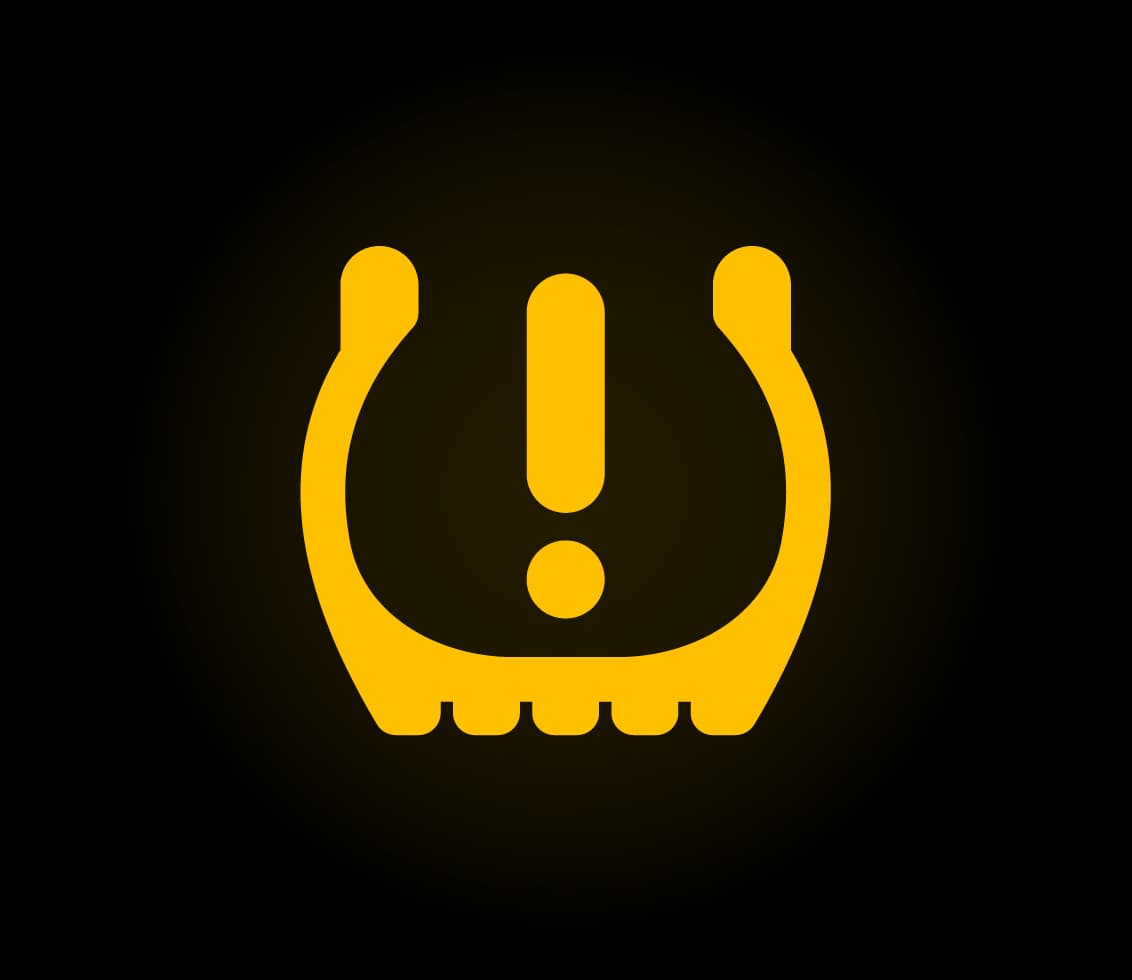Salinas Tires
Tire Pressure Monitor Sensor Service (TPMS)

If your TPMS light is on, then that means your tires are either underinflated or one of your tire pressure sensors may be malfunctioning.
When the TPMS light turns on a vehicle’s dashboard, it serves as a critical indicator of potential issues with the tire pressure or the TPMS system itself. Ignoring this warning can lead to a range of safety hazards and operational inefficiencies. A sudden drop in tire pressure may signify a puncture, leak, or other forms of damage to the tire, which, if left unaddressed, could lead to further deterioration or even a flat tire.
Additionally, a malfunctioning TPMS sensor may hinder the system’s ability to accurately monitor tire pressure, compromising overall safety. Timely inspection by one of our qualified automotive professionals is recommended to identify and rectify any underlying issues. By promptly addressing the TPMS warning, drivers can ensure optimal tire performance, fuel efficiency, and vehicle stability, ultimately contributing to a safer and more reliable driving experience.
You can purchase new TPMS sensors or have them diagnosed here at Salinas Tires – we offer TPMS repair for all vehicles !
What Are TPMS Sensors

A Tire Pressure Monitoring System (TPMS) is an automotive safety feature designed to monitor and provide real-time information about the air pressure levels in a vehicle’s tires. It consists of sensors located in each tire, which continuously measure the pressure and transmit this data to a central control unit within the vehicle. If the pressure in any of the tires falls below a predetermined threshold, the TPMS alerts the driver through a warning light on the dashboard or a notification on the vehicle’s information display. This system plays a crucial role in maintaining optimal tire performance, fuel efficiency, and overall safety on the road. By ensuring that tires are properly inflated, TPMS helps prevent accidents, reduces tire wear, and enhances vehicle handling and stability. It also contributes to environmental conservation by improving fuel economy, as underinflated tires tend to increase fuel consumption. Overall, TPMS serves as a valuable tool for drivers to keep their vehicles in optimal condition and enhance safety while driving.
TPMS Repair is handled by our professional qualified technicians, please give us a call and let us help you today!
How Often Should They Be Replaced
F.A.Q
1. How long do tire pressure sensors last?
Typicially around 5-10 years.
2. Can we just change the batteries out?
No. TPMS Sensors are not designed to have their batteries replaced.
3. Can I repair a broken tire pressure sensor
Yes, but in most cases it costs just as much to replace a sensor as it does to repair so we recommend a complete replacement. Proper TPMS repair includes a new sensor, as well as re-programming
4. How do I know if my tire pressure sensor is broken or needs replacement?
The only way to know is to have it scanned with a professional TPMS tool. We offer free TPMS scans here at Salinas Tires.
5. How much does a new TPMS sensor cost?
Cost will vary depending on the vehicle, but you can expect to pay around $40 per sensor. Additional labor charges may apply
6. Can I bring in my own TPMS sensor and have it programmed?
We do not recommend it unless the proper research has been done on what type of sensor you need. We’ve had many issues with low-quality sensors or sensors claiming to fit vehicles that they are not compatible with. There is no warranty on sensors not purchased here.
7. My sensors were installed elsewhere and don’t work, can you diagnose the issue?
Yes, a TPMS diagnostic and repair is a flat fee of $25. We don’t charge if the issue isn’t resolved.
Still have questions? Give us a call or schedule your TPMS diagnosis today!
Mon-Fri: 8:30 AM - 5:30 PM
Saturday: 8:30 AM - 5:00 PM
Sunday: 9:00 AM - 4:00 PM
8813 Norwalk Blvd
Whittier, CA 90606
